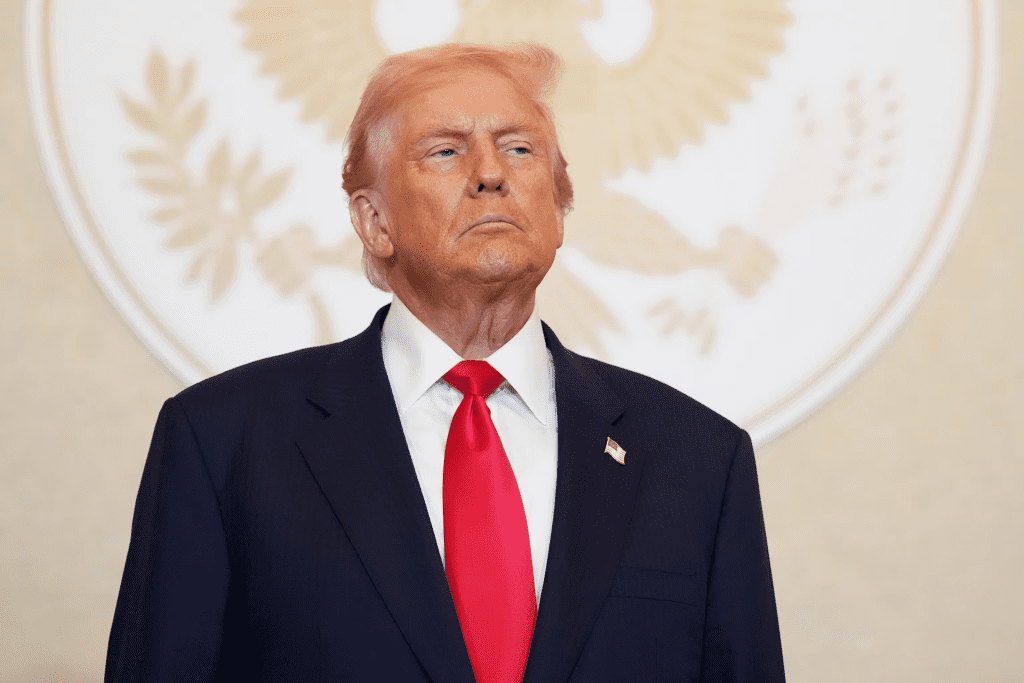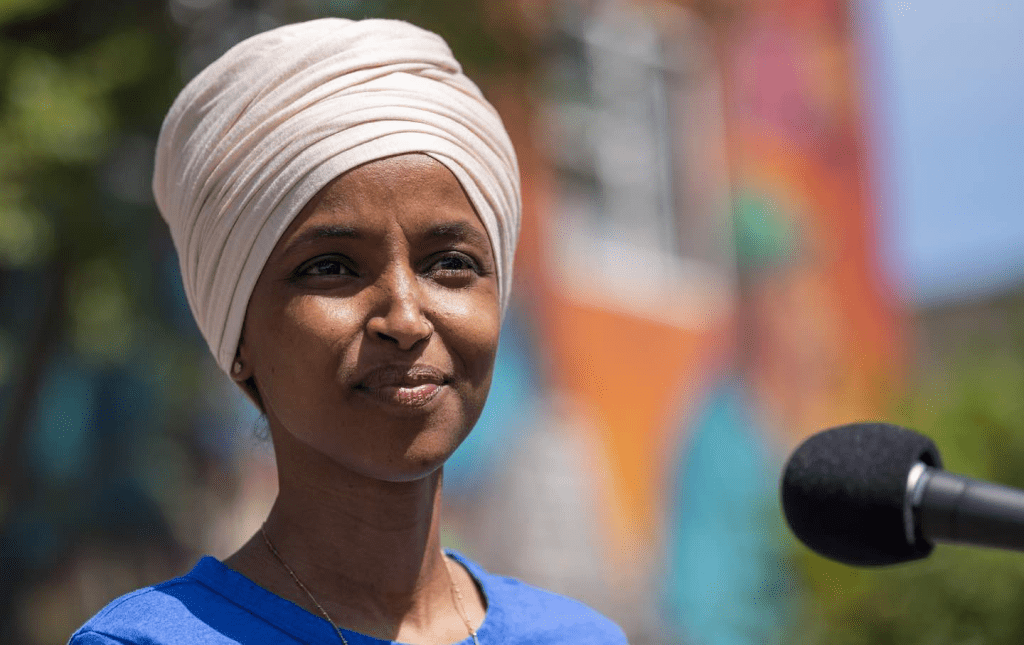In a Viral Social-Media Clash, President Trump Tells Rep. Ilhan Omar to Return to Somalia—And Her Defiant Reply Falls on a Divided Nation
The latest showdown between President Donald Trump and Representative Ilhan Omar ignited anew this weekend, when Trump posted a directive on his social platform telling the Minnesota congresswoman: “She should go back!” The message came paired with a video of Omar speaking. Born in Somalia, arriving in the U.S. as a child refugee and becoming a naturalized citizen in 2000, Omar responded with an unflinching refusal to recede. “I’m not going anywhere,” she declared in a subsequent radio interview. The incident reopened the wound of earlier controversy when, during his first term, Trump infamously told a group of four Democratic congresswomen of color to “go back” to where they came from—even though all are U.S. citizens.

In the latest flare-up, Trump’s post continued his long-running criticism of Omar. In September, he publicly claimed he had raised with Somalia’s President Hassan Sheikh Mohamud the idea that Omar could be “taken back” to Somalia, quoting the president as saying “I don’t want her.” Omar dismissed the remarks as absurd, saying she “is not the eight-year-old who escaped war anymore. I’m grown. My kids are grown.” The exchange has exposed not only the fierce partisan divide in Washington, but also deep fractures over identity, immigration and belonging in American political discourse.
The incendiary tone and content of Trump’s message have provoked outrage from a broad spectrum of commentators. Many civil‐rights advocates called the directive to “go back” rooted in xenophobic tropes long rejected in American public life. The attacks on Omar’s citizenship and heritage, they say, revive a dark tradition of exclusion and racialized political rhetoric. At the same time, vocal supporters of Trump view his words as a bold confrontation of what they see as unaccountable progressive activists who leverage identity and immigration politics to advance agendas. In their view, Omar’s criticisms of the U.S.—in particular her remarks in the wake of the assassination of conservative activist Charlie Kirk—deserve sharp pushback.

In Congress, the tension remains palpable. Earlier this year, a censure resolution introduced by Representative Nancy Mace sought to punish Omar over her remarks about Kirk. The resolution was narrowly blocked in the House by a 214-213 vote, but the bitter partisan fight underscored just how polarised the environment has become. Meanwhile, a Texas Republican lawmaker, Representative Brandon Gill, opened a petition calling for Omar’s arrest and deportation to Somalia—a move frequently cited by critics as an example of extremist language crossing into official channels.
Omar’s trajectory is striking. Fleeing civil war-torn Somalia as a young girl, spending years in a refugee camp in Kenya and eventually resettling in Minneapolis, she rose to the U.S. House in 2019. Her critics, however, have often focused less on her political positions than on her background—an element of personal history that she, her allies say, should be a source of strength rather than stigma. In this latest confrontation, her straightforward refusal to retreat resonated. “I could live wherever I want if I wanted to,” she said. Her stance only amplified questions about how American society treats those who arrived as immigrants—or who speak out against the status quo.

From the Trump perspective, the message resonates with his broader politics of border control, national sovereignty and cultural identity. His critics accuse him of weaponising fear, leveraging identity conflicts for political gain and undermining norms of respect in public discourse. Supporters argue that he simply holds public officials like Omar accountable when they ‘complain about America’ while benefiting from American citizenship. Whether one agrees with his tone or not, the incident underscores how extreme polarization has become in modern U.S. politics.
As each side dug in, the broader stakes echoed beyond one tweet or one congresswoman’s comeback. The values at play include immigration, national identity, respect for public institutions, and the limits of political rhetoric. For many moderate voters, the spectacle raises concern about whether politics has become so steeped in personal attack that substantive policy debate is lost. The attack on Omar’s citizenship and birthplace, rather than her policy views, suggests to some a diversion from substantive discussion to destructive spectacle.
Still, in the arena of party politics, Omar remains a lightning rod. Her critics on the right cite her outspoken criticism of American foreign policy, her advocacy for refugee resettlement and her progressive positions as evidence of a figure out of step with mainstream America. Her supporters describe her as a pioneering voice, reflective of an increasingly diverse nation—and underscore that America’s strength lies in its immigrant foundations. Trump’s message may energize his base, but it also risks alienating moderate independent voters who believe personal attacks cross a threshold.

At the same time, Trump’s repeated use of “go back” rhetoric—reminiscent of his 2019 remarks—invites scrutiny. The earlier incident sparked global condemnation and accusations of racism. Political analysts suggest that this latest episode may serve as a test of how much such language still mobilises voters, or whether backlash has grown stronger this time around. The question remains: does the public still respond to the old-school “foreign outsider” frame, or has American politics moved on?
Behind the headlines and soundbites, it is Omar’s story of survival and ambition that adds unmistakable emotional weight. A former refugee turned U.S. Representative, her life reflects a form of the American promise. Yet the attacks on her citizenship turn that promise into question: can someone who arrived as an outsider truly embody the nation and serve in its highest offices without facing perpetual scrutiny? The broader cultural conversation about belonging and citizenship continues to play out in this duel.

Trump, meanwhile, remains resolute in his approach. His reiteration of the “go back” comment may appear harsh, but for his supporters it is consistent with his emphasis on prioritising American interests, defending borders, and reframing cultural debates. Even if the language remains controversial, the intent aligns with his pledge to ‘put America first’. With the 2026 midterms and beyond looming, the episode amplifies how identity politics, immigration and culture wars are likely to dominate public discourse.
For now, Ilhan Omar says she is unmoved. “I’m grown, my kids are grown,” she said. “I could go live wherever I want if I wanted to.” Her defiance strikes at the heart of the attack: rather than bowing, she stands firm. The broader picture remains unresolved: Will voters reward the blunt approach of Trump’s base, or reject the personal attacks in favor of civility and substance? In the end, both sides are watching, strategising—and real people are listening.


